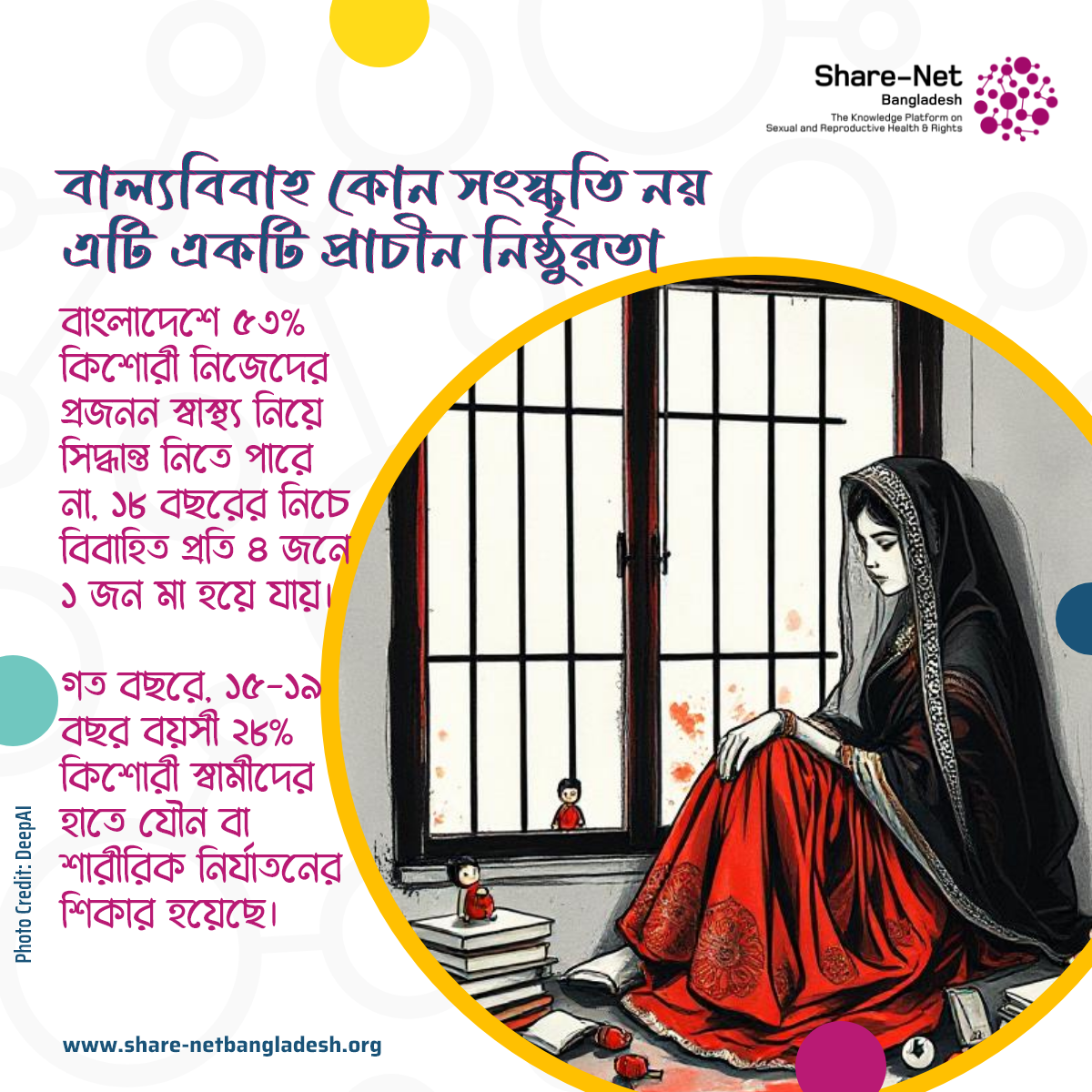One in Four Married Girls in Bangladesh Becomes Pregnant Before 18: The Reproductive Toll of Child Marriage in Bangladesh
In Bangladesh, the numbers paint a grim picture. A recent UN report reveals that 51 percent of Bangladeshi girls are married before they turn 18, making the country the highest in South Asia for child marriage. While neighbouring countries like Sri Lanka (10%), Pakistan (18%), and India (23%) have made progress, Bangladesh remains trapped in a cycle that undermines its adolescent girls’ rights and futures.
Child marriage is more than a harmful tradition—it is a violation of sexual and reproductive health and rights (SRHR) and a gateway to gender-based violence (GBV). As the report highlights, 53 percent of adolescent girls lack control over their reproductive health, and one in four married girls under 18 becomes pregnant, often with little say in the matter. The physical toll is devastating: adolescent bodies are not ready for childbirth, leading to chronic illnesses and poor maternal and child health outcomes.
Violence only compounds the crisis. Last year, 28 percent of adolescent girls aged 15 to 19 reported experiencing physical or sexual violence from their partners. These are not just numbers—they reflect the daily realities of girls who are pushed into adult responsibilities too soon, stripped of agency and denied the opportunity to grow.
“Child marriage erases capabilities, destroys potential, and ends dreams,” the report rightly states. And while the Child Marriage Restraint Act of 2017 was a step forward, its loophole—allowing exceptions under “special circumstances”—is being widely misused.
Poverty is a major driver. Girls from the poorest households are three times more likely to be married before 18 than those from wealthier families. The pressure of dowries, combined with fears of sexual violence and societal judgment, makes early marriage seem like a ‘solution’ for struggling families.
The pandemic made things worse. With schools closed and futures uncertain, many families saw marriage as the only way to protect their daughters.
Yet, hope is not lost. Grassroots efforts by UNOs, hotline services, and community interventions have successfully halted some early marriages. Expanding girls’ access to education, sexual health information, and economic opportunities can flip the script. Empowered girls delay marriage, demand their rights, and drive change.
Men and boys must be part of this movement. “As long as men continue to shape the realities of women’s lives, they must also be part of the solution,” the report stresses.
Ending child marriage is not just about changing laws—it’s about changing mindsets. Bangladesh cannot afford to lose another generation to a practice that stunts progress, health, and human rights.
Source: The Daily Star

